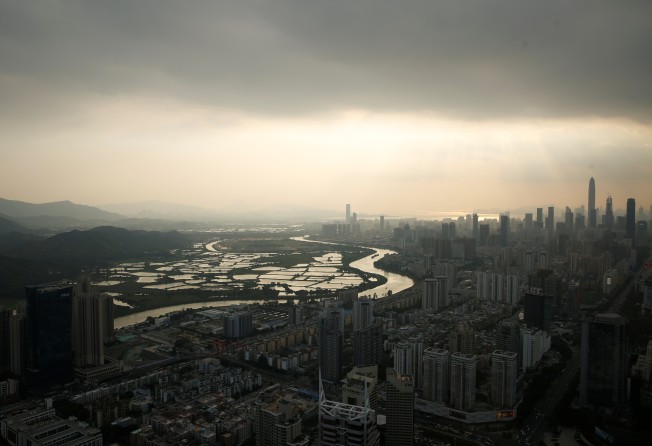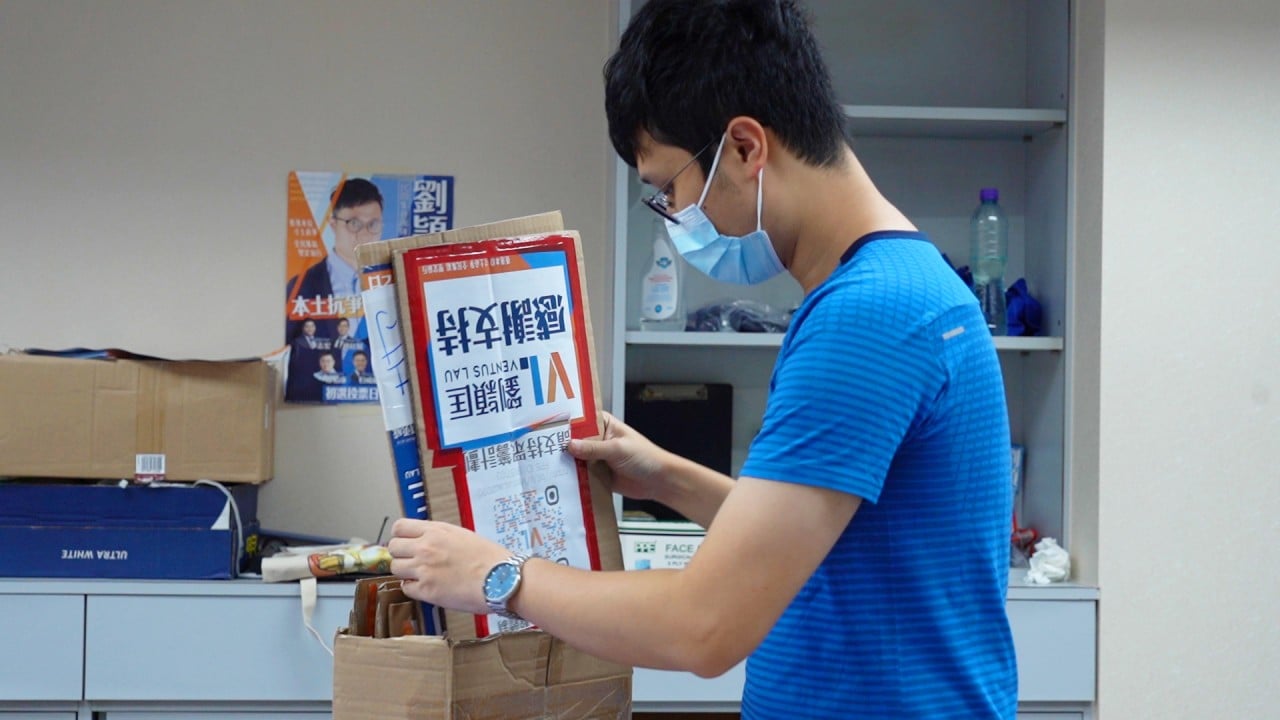
02:20
Carrie Lam delays policy address until after Beijing talks on Hong Kong’s economic recovery

Chief Executive Carrie Lam Cheng Yuet-ngor and her entourage of ministers are no doubt making final preparations for their trip up north to secure support from the central government for proposals to stimulate the city’s economy, which had already been ravaged by months of social unrest before Covid-19 hit.
This is the trip for which Lam postponed her policy address, and while she had wanted it to happen at the end of October, she will have to make do with a slightly delayed and significantly extended version, complete with a day in Shenzhen first, probably in quarantine.
Perhaps this increasing inaccessibility of the central leadership is part of the new normal we have been expecting; after all, it was only two years ago that Lam received some pretty spectacular VIP treatment.
In October 2018, at the opening of the Hong Kong-Zhuhai-Macau Bridge, which was considered the showpiece of innovation and integration of Hong Kong, Macau and the mainland, Lam shared centre stage with President Xi Jinping: they entered the Zhuhai immigration clearance facility side by side, smiling and chatting, followed by the vice-premier and Lam’s Macau counterpart.
But, due to Covid-19 and subsequent border restrictions, there’s little traffic now on the bridge that is supposed to attest to the interconnectedness of these cities. And, being able to walk side by side with the president is a thing of the past for Hong Kong’s chief executive.

02:20
Carrie Lam delays policy address until after Beijing talks on Hong Kong’s economic recovery
Although Lam has said the discussions in Beijing will only be about economic issues, many continue to speculate that the proposal to allow Hongkongers to vote from the mainland will also be on the agenda, since Lam herself broached the subject recently.
The idea of allowing Hongkongers living on the mainland or in Macau to vote in Hong Kong elections has ignited heated discussion. Although it is not the first time this idea has been floated, choosing to revisit the issue now, when relations with the mainland are not exactly at a high point, raises far more questions than solutions to any problems it is meant to solve.
Yes, it is only natural to consider voting arrangements for those outside Hong Kong, given that more residents have taken up jobs, set up businesses, or retired to the mainland. It is, after all, what integration entails. Add that to the fact that absentee voting isn’t a revolutionary concept and the likelihood that removing barriers for voters to cast their ballots will make for a better democratic process.
However, legitimate concerns remain over the arrangements for those who cannot cast their votes in designated polling stations. And, for Hong Kong, it calls into question the limits of “one country, two systems”, a concept that is supposed to keep Hong Kong’s “well water” from mixing with the mainland’s “river water” and vice versa.
To hold “well water” elections in “river water” is to enter very uncharted waters then. The complexities surrounding absentee voting go far beyond mere technicalities like who is qualified to vote from the mainland and how to validate voter identification. Election officials have voiced concerns over the practical challenges they would face in ensuring the credibility of an election.

06:00
What’s next for Hong Kong’s Legco after security law disqualifications and pandemic poll delay?
Other concerns include whether those living across the border could access candidate information to make informed decisions. The “two systems” do pose inherent challenges and they need to be addressed.
And what of the recent suggestion that Zhuhai’s Guishan Island could be leased to Hong Kong to ease the housing crunch? This, too, is not a new idea. In 2009, the State Council approved the leasing of parts of Hengqin, an island in Zhuhai, to Macau. But increasingly, we are reminded that the two special administrative regions are not alike and that whatever applies to one doesn’t necessarily apply to the other.
Specifically, a blog that is widely believed to reflect the views of the mainland’s political elite has thrown ice-cold water on the Guishan Island suggestion, even though such a project, in theory, would help facilitate further regional cooperation and integration.
The blog post that has been circulated in political circles in Hong Kong dismissed the suggestion as wishful thinking. It had harsh words for certain quarters, saying that the city was no longer a “model student” and should learn to solve its own problems.
Alice Wu is a political consultant and a former associate director of the Asia Pacific Media Network at UCLA